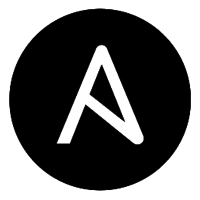Need advice about which tool to choose?Ask the StackShare community!
Chef vs Rundeck: What are the differences?
Key Differences between Chef and Rundeck for Website Development
Installation and Configuration: In terms of installation and configuration, Chef requires more setup and complexity as compared to Rundeck. Chef involves the creation and management of a Chef server, which stores and distributes configuration information, while Rundeck can be set up quickly and easily with minimal configuration.
Workflow Automation and Orchestration: While both Chef and Rundeck provide workflow automation and orchestration capabilities, Chef focuses on configuration management and continuous delivery, whereas Rundeck offers a broader range of functionality for job scheduling, execution, and monitoring across various platforms and infrastructure.
Technical Complexity: Chef involves writing complex recipes and cookbooks using a Ruby-based DSL (Domain-Specific Language) to define and manage infrastructure configurations. On the other hand, Rundeck provides a more accessible and user-friendly interface with a simple YAML-based job definition format that allows easy creation and management of jobs.
Target Environment Support: Chef primarily focuses on server and infrastructure configuration management, making it more suitable for managing large-scale environments with complex configurations. Rundeck, on the other hand, supports a wide range of target environments, including servers, cloud platforms, and databases, making it more versatile for managing diverse environments.
Community and Ecosystem: Chef has a larger and more active community, offering a vast collection of community-contributed cookbooks and resources. Rundeck, although having a smaller community, still provides a decent number of plugins and integrations for various tools and services, enabling seamless integration within a DevOps toolchain.
Pricing and Licensing: Chef offers both an open-source version (Chef Infra) and a commercial version (Chef Automate) with additional features and support. The commercial version requires licensing based on node count, making it more costly for large-scale deployments. Rundeck, on the other hand, is entirely open-source, allowing unlimited usage without any licensing costs.
In Summary, Chef is known for its robust configuration management and continuous delivery capabilities, while Rundeck excels in job scheduling, execution, and management across diverse platforms. Chef requires more technical expertise and server infrastructure, whereas Rundeck offers easier setup and support for various target environments. Chef has a larger community and both open-source and commercial versions, while Rundeck is entirely open-source and free to use.
I'm just getting started using Vagrant to help automate setting up local VMs to set up a Kubernetes cluster (development and experimentation only). (Yes, I do know about minikube)
I'm looking for a tool to help install software packages, setup users, etc..., on these VMs. I'm also fairly new to Ansible, Chef, and Puppet. What's a good one to start with to learn? I might decide to try all 3 at some point for my own curiosity.
The most important factors for me are simplicity, ease of use, shortest learning curve.
I have been working with Puppet and Ansible. The reason why I prefer ansible is the distribution of it. Ansible is more lightweight and therefore more popular. This leads to situations, where you can get fully packaged applications for ansible (e.g. confluent) supported by the vendor, but only incomplete packages for Puppet.
The only advantage I would see with Puppet if someone wants to use Foreman. This is still better supported with Puppet.
If you are just starting out, might as well learn Kubernetes There's a lot of tools that come with Kube that make it easier to use and most importantly: you become cloud-agnostic. We use Ansible because it's a lot simpler than Chef or Puppet and if you use Docker Compose for your deployments you can re-use them with Kubernetes later when you migrate
Pros of Chef
- Dynamic and idempotent server configuration110
- Reusable components76
- Integration testing with Vagrant47
- Repeatable43
- Mock testing with Chefspec30
- Ruby14
- Can package cookbooks to guarantee repeatability8
- Works with AWS7
- Has marketplace where you get readymade cookbooks3
- Matured product with good community support3
- Less declarative more procedural2
- Open source configuration mgmt made easy(ish)2
Pros of Rundeck
- Role based access control3
- Easy to understand3
- Doesn't need containers1












































